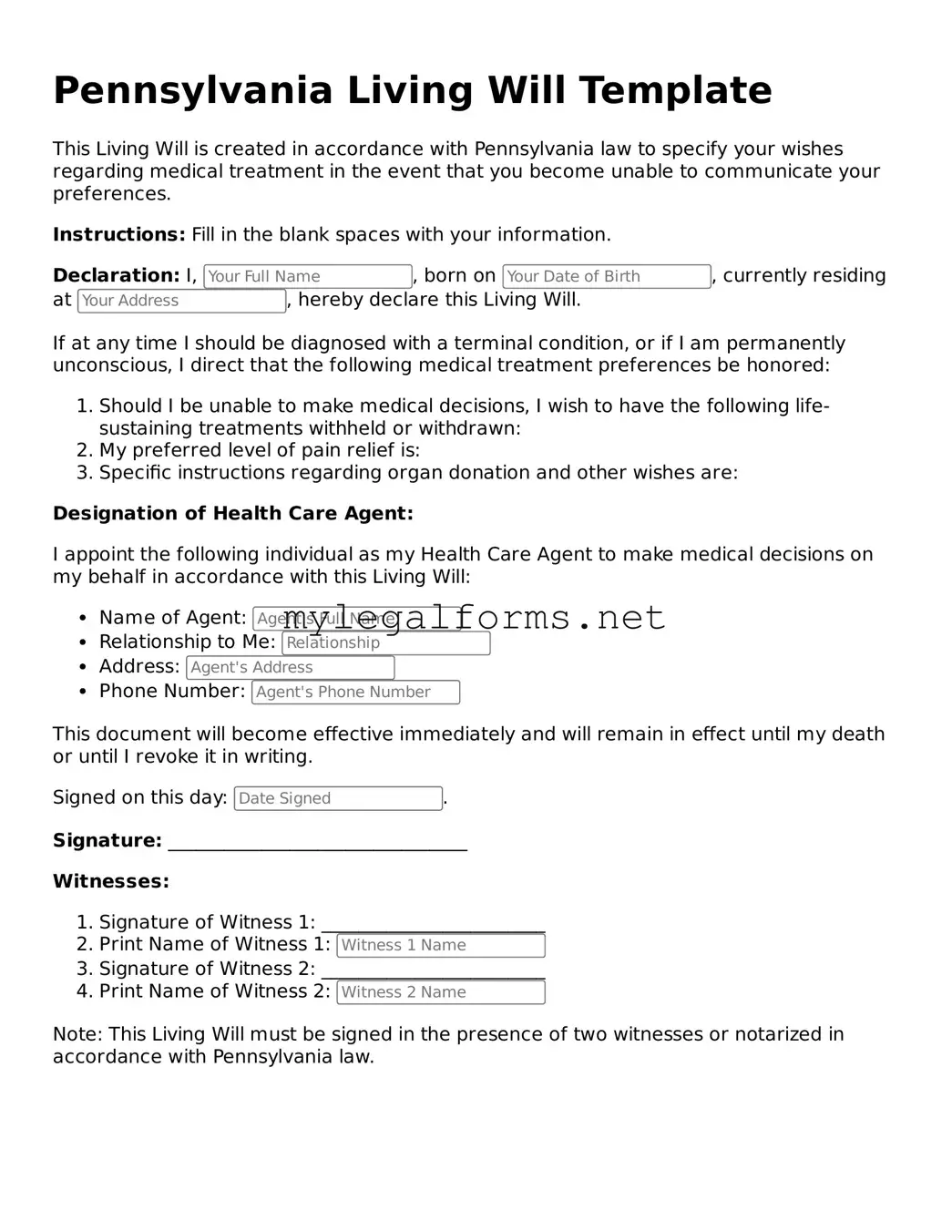Living Will Document for Pennsylvania State
A Pennsylvania Living Will form is a legal document that allows individuals to express their wishes regarding medical treatment in the event they become unable to communicate their preferences. This form is essential for ensuring that one's healthcare decisions are honored, particularly in critical situations. By completing a Living Will, individuals can provide guidance to their loved ones and medical professionals about the types of care they wish to receive or decline.
Launch Living Will Editor

Living Will Document for Pennsylvania State
Launch Living Will Editor

Launch Living Will Editor
or
⇓ PDF Form
Complete the form at your pace — fast
Finish your Living Will online and download the final version.